-
 Bitcoin
Bitcoin $114500
-0.31% -
 Ethereum
Ethereum $3648
1.11% -
 XRP
XRP $3.033
-0.27% -
 Tether USDt
Tether USDt $0.9999
-0.01% -
 BNB
BNB $758.5
-0.32% -
 Solana
Solana $167.5
1.48% -
 USDC
USDC $0.9998
-0.02% -
 TRON
TRON $0.3331
0.74% -
 Dogecoin
Dogecoin $0.2039
0.25% -
 Cardano
Cardano $0.7419
-0.46% -
 Hyperliquid
Hyperliquid $39.21
2.66% -
 Stellar
Stellar $0.4049
-1.95% -
 Sui
Sui $3.483
-0.56% -
 Bitcoin Cash
Bitcoin Cash $570.8
2.89% -
 Chainlink
Chainlink $16.67
-0.57% -
 Hedera
Hedera $0.2470
-1.57% -
 Ethena USDe
Ethena USDe $1.001
0.00% -
 Avalanche
Avalanche $22.36
1.52% -
 Litecoin
Litecoin $123.4
4.35% -
 UNUS SED LEO
UNUS SED LEO $8.989
0.09% -
 Toncoin
Toncoin $3.324
-2.40% -
 Shiba Inu
Shiba Inu $0.00001219
-1.30% -
 Uniswap
Uniswap $9.811
2.54% -
 Polkadot
Polkadot $3.662
-0.07% -
 Monero
Monero $295.5
-3.85% -
 Dai
Dai $1.000
0.01% -
 Bitget Token
Bitget Token $4.345
0.24% -
 Cronos
Cronos $0.1380
0.95% -
 Pepe
Pepe $0.00001044
-1.14% -
 Ethena
Ethena $0.5981
-4.24%
can bitcoin payment be reversed
Despite Bitcoin's irreversible transactions, exceptions exist, including recipient refunds, unconfirmed transactions, and fraudulent activities.
Oct 04, 2024 at 09:42 pm
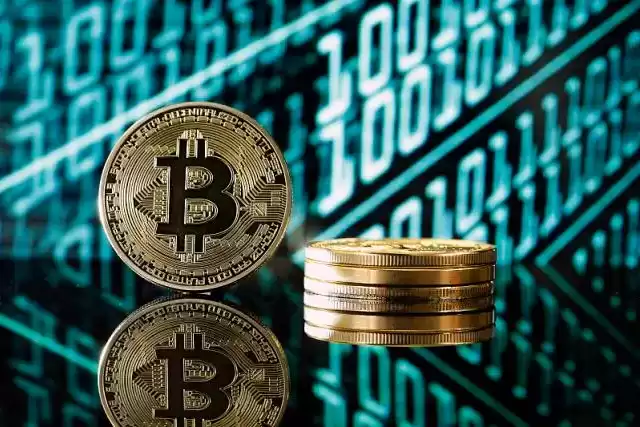
Can Bitcoin Payments Be Reversed?
Bitcoin payments are irreversible by design. Once a transaction is confirmed on the blockchain, it cannot be undone. This is because Bitcoin transactions are recorded on a distributed public ledger that is maintained by a network of computers. This makes it virtually impossible to alter or reverse a transaction once it has been confirmed.
However, there are a few exceptions to this rule. In some cases, a Bitcoin payment may be reversed if:
- The recipient agrees to refund the payment. If the recipient of a Bitcoin payment agrees to refund the payment, they can create a new transaction that sends the Bitcoin back to the sender. This is the most common way to reverse a Bitcoin payment.
- The transaction is unconfirmed. If a Bitcoin transaction has not yet been confirmed on the blockchain, it may be possible to cancel the transaction. This can be done by double-spending the Bitcoin, which means sending the same Bitcoin to two different recipients. The first transaction will be confirmed, while the second transaction will be rejected.
- The transaction is fraudulent. If a Bitcoin transaction is fraudulent, the victim may be able to get the payment reversed. This can be done by contacting the exchange or wallet provider that handled the transaction.
It is important to note that reversing a Bitcoin payment is not always possible. In most cases, Bitcoin payments are irreversible. Therefore, it is important to be sure that you want to send Bitcoin to someone before you do so.
Additional Information
In addition to the exceptions listed above, there are a few other ways to mitigate the risk of irreversible Bitcoin payments:
- Use a trusted third-party service. There are a number of third-party services that allow you to send and receive Bitcoin payments in a reversible manner. These services typically act as an intermediary between the sender and recipient, and they hold the Bitcoin until both parties agree to the transaction.
- Create a multi-signature wallet. A multi-signature wallet requires multiple signatures to authorize a transaction. This can help to prevent unauthorized payments from being sent.
- Use a hardware wallet. A hardware wallet is a physical device that stores your Bitcoin offline. This can help to protect your Bitcoin from being stolen or hacked.
By following these tips, you can help to reduce the risk of losing your Bitcoin to an irreversible payment.
Disclaimer:info@kdj.com
The information provided is not trading advice. kdj.com does not assume any responsibility for any investments made based on the information provided in this article. Cryptocurrencies are highly volatile and it is highly recommended that you invest with caution after thorough research!
If you believe that the content used on this website infringes your copyright, please contact us immediately (info@kdj.com) and we will delete it promptly.
- Decentralized Provers Take Center Stage: Mainnet Launches and Network Growth
- 2025-08-06 00:30:12
- ElevenLabs, AI Music, and Artist Licensing: Navigating the New Soundscape
- 2025-08-06 00:30:12
- Crypto Presales to Watch: WeWake Finance & the Rise of User-Friendly Web3
- 2025-08-06 00:35:12
- Uniswap Valuation Under the Microscope: Bitwise CIO's Perspective
- 2025-08-05 23:10:12
- Coinbase's $2 Billion Convertible Notes: A Bold Move or Risky Bet?
- 2025-08-05 23:10:12
- BlockchainFX ($BFX): Your Last Chance at a 100x Crypto Presale?
- 2025-08-05 23:50:12
Related knowledge
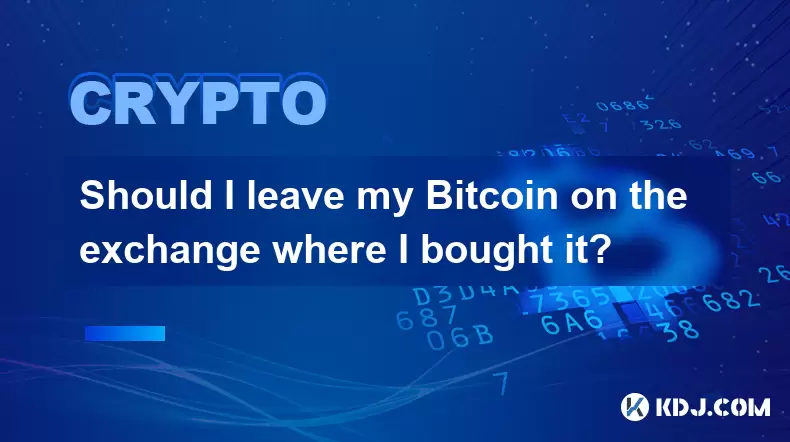
Should I leave my Bitcoin on the exchange where I bought it?
Aug 04,2025 at 06:35am
Understanding the Role of Smart Contracts in Decentralized Finance (DeFi)Smart contracts are self-executing agreements with the terms directly written...
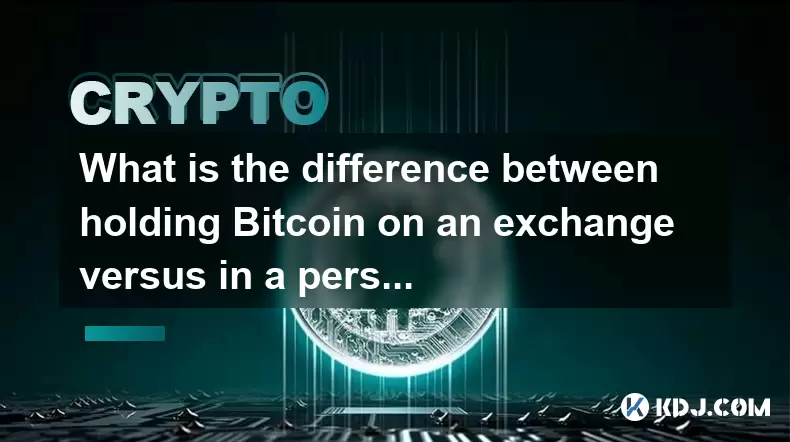
What is the difference between holding Bitcoin on an exchange versus in a personal wallet?
Aug 02,2025 at 03:15pm
Understanding Custodial vs Non-Custodial ControlWhen holding Bitcoin on an exchange, users are essentially entrusting their assets to a third party. E...

What is the environmental impact of Bitcoin mining, and is it a serious concern?
Aug 04,2025 at 02:14am
Understanding the Energy Consumption of Bitcoin MiningBitcoin mining relies on a proof-of-work (PoW) consensus mechanism, which requires miners to sol...

What is a 51% attack, and could it destroy Bitcoin?
Aug 03,2025 at 05:08pm
Understanding the Concept of a 51% AttackA 51% attack refers to a scenario in which a single entity or group gains control of more than half of a bloc...
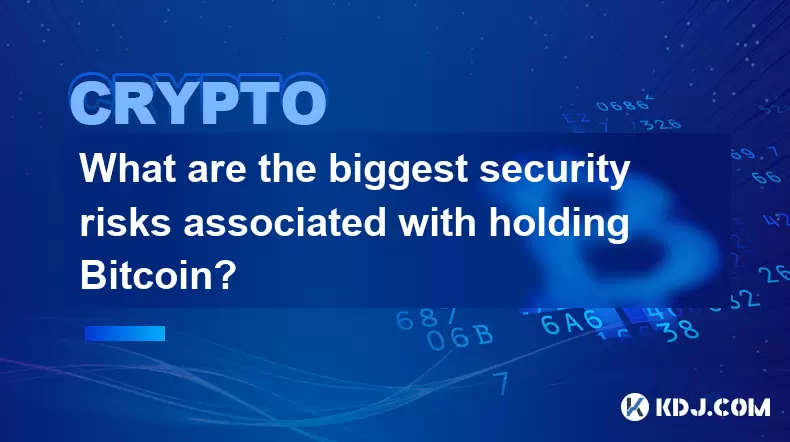
What are the biggest security risks associated with holding Bitcoin?
Aug 03,2025 at 03:16pm
Exposure to Private Key CompromiseOne of the most critical security risks when holding Bitcoin is the compromise of private keys. These cryptographic ...
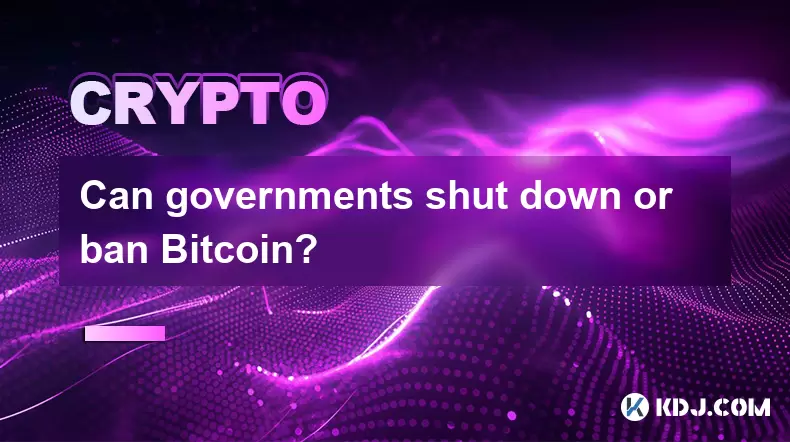
Can governments shut down or ban Bitcoin?
Aug 02,2025 at 09:44am
Understanding Bitcoin’s Decentralized StructureBitcoin operates on a decentralized peer-to-peer network, meaning it is not controlled by any single en...

Should I leave my Bitcoin on the exchange where I bought it?
Aug 04,2025 at 06:35am
Understanding the Role of Smart Contracts in Decentralized Finance (DeFi)Smart contracts are self-executing agreements with the terms directly written...

What is the difference between holding Bitcoin on an exchange versus in a personal wallet?
Aug 02,2025 at 03:15pm
Understanding Custodial vs Non-Custodial ControlWhen holding Bitcoin on an exchange, users are essentially entrusting their assets to a third party. E...

What is the environmental impact of Bitcoin mining, and is it a serious concern?
Aug 04,2025 at 02:14am
Understanding the Energy Consumption of Bitcoin MiningBitcoin mining relies on a proof-of-work (PoW) consensus mechanism, which requires miners to sol...

What is a 51% attack, and could it destroy Bitcoin?
Aug 03,2025 at 05:08pm
Understanding the Concept of a 51% AttackA 51% attack refers to a scenario in which a single entity or group gains control of more than half of a bloc...

What are the biggest security risks associated with holding Bitcoin?
Aug 03,2025 at 03:16pm
Exposure to Private Key CompromiseOne of the most critical security risks when holding Bitcoin is the compromise of private keys. These cryptographic ...

Can governments shut down or ban Bitcoin?
Aug 02,2025 at 09:44am
Understanding Bitcoin’s Decentralized StructureBitcoin operates on a decentralized peer-to-peer network, meaning it is not controlled by any single en...
See all articles

























































































